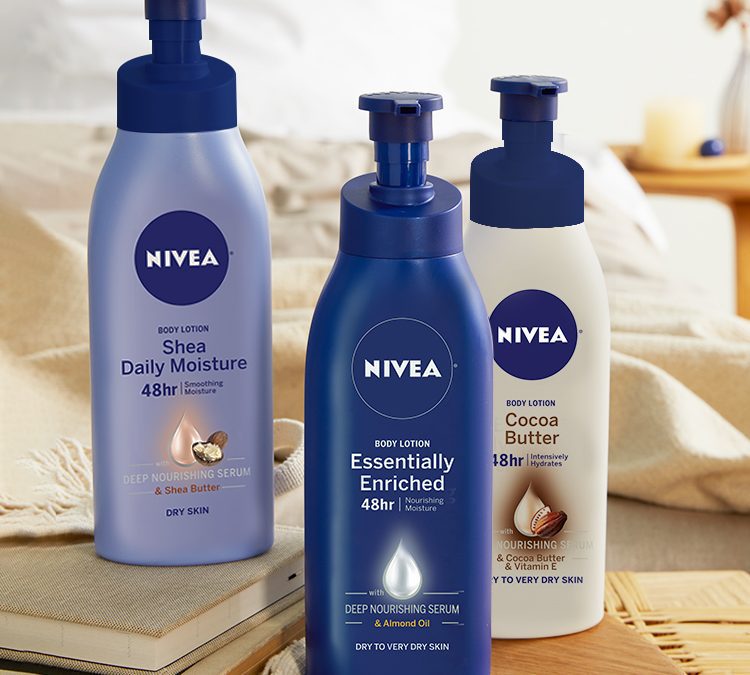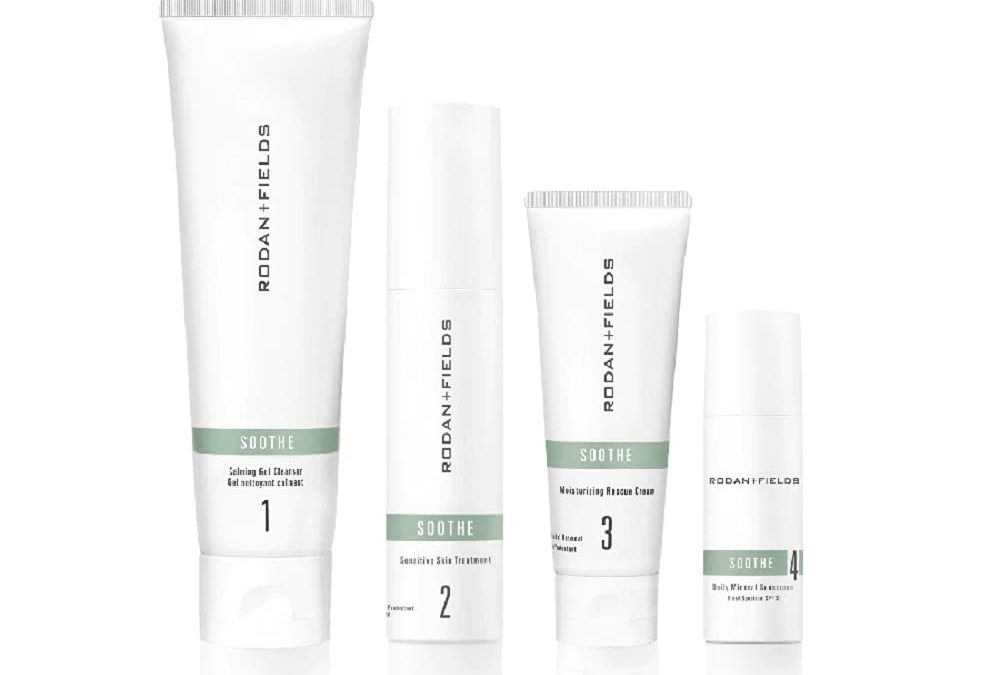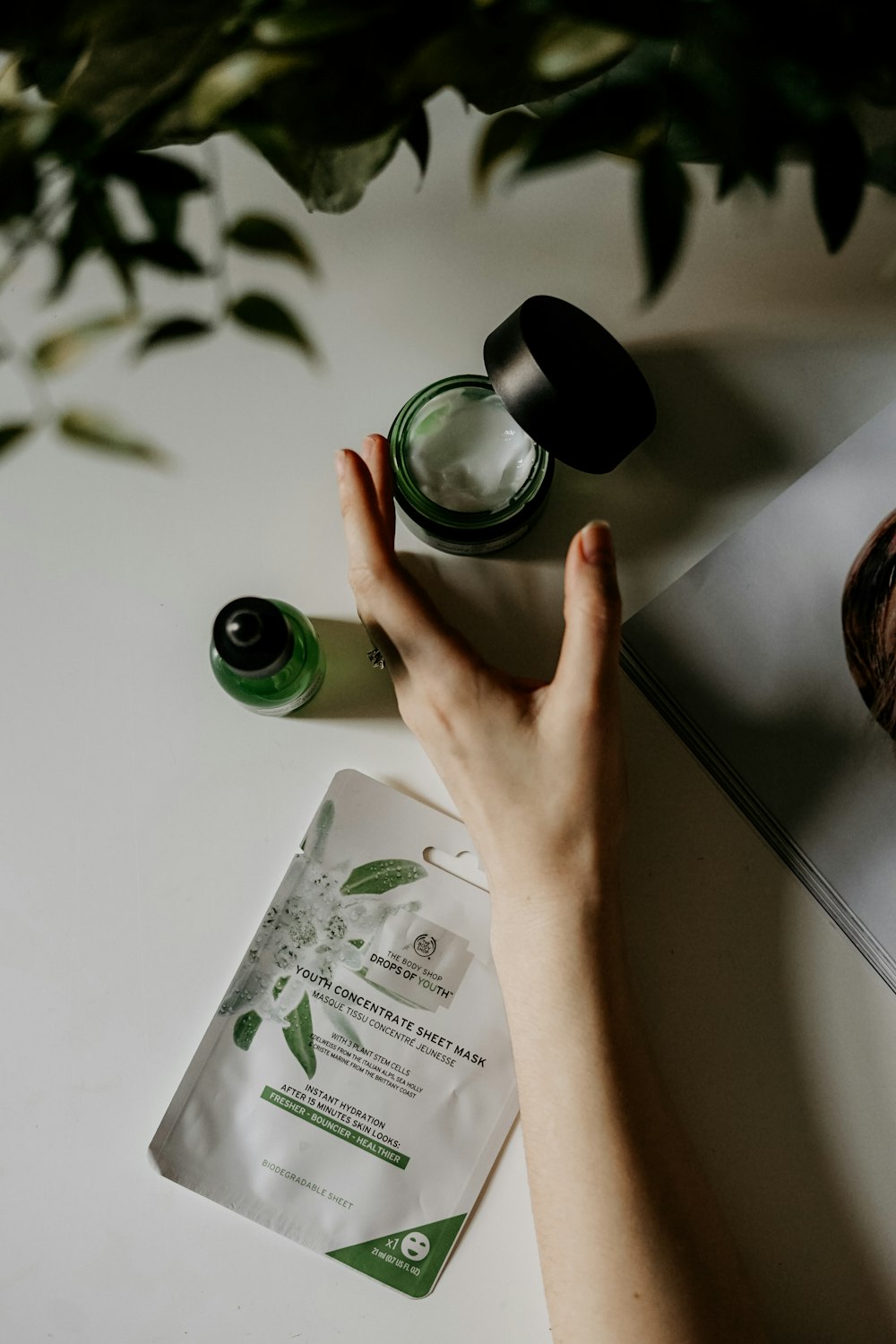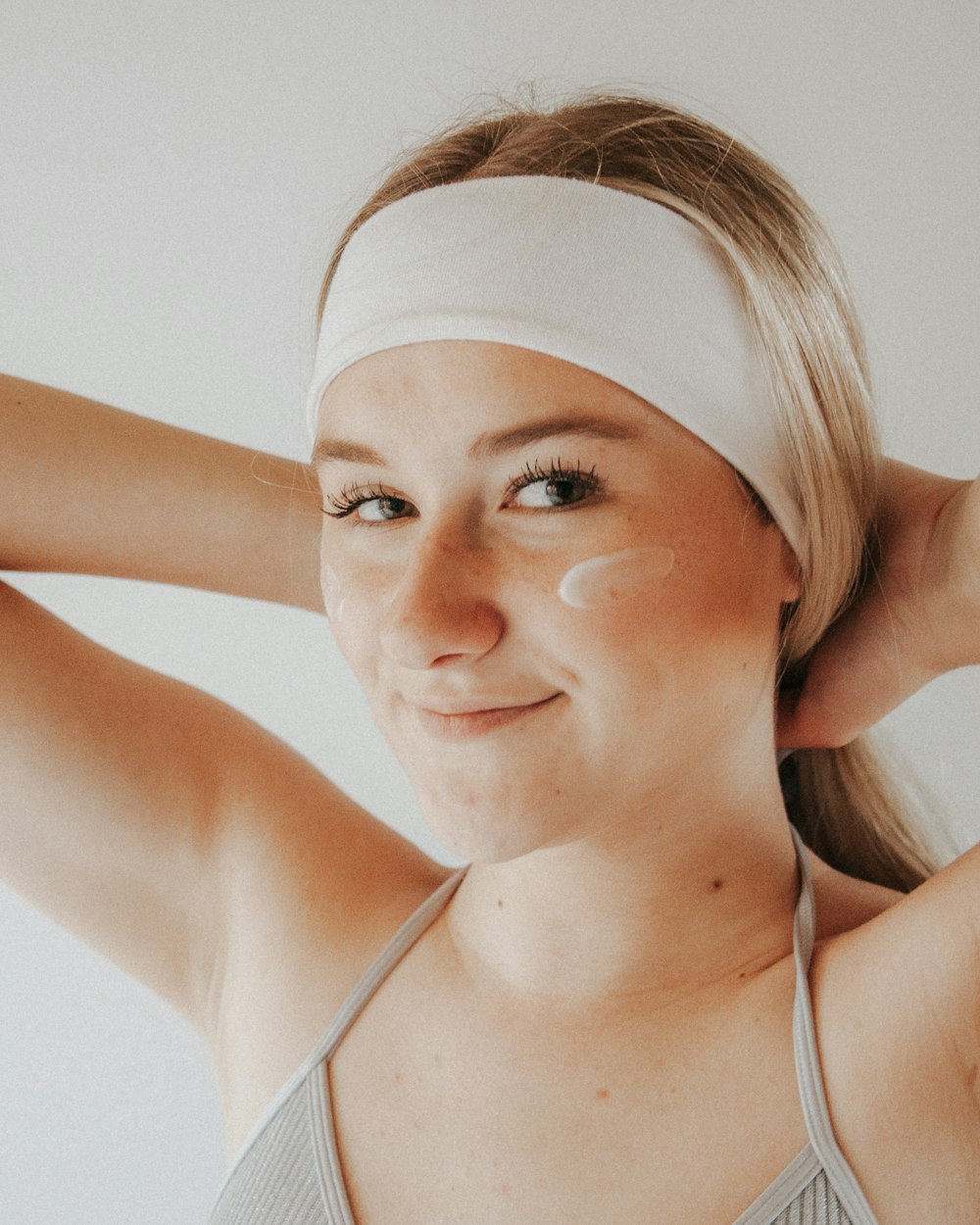How To Care For Sensitive Skin

written by nail expert Jess Rowley
Wondering how to care for sensitive skin naturally?
Then you’re in the right place. I’ve just spent the last 2 hours on the internet to uncover the best-kept secrets for looking after sensitive skin, comparing several articles so you get all of the information you need when it comes to taking care of sensitive skin.
We all know that sensitive skin, like any other skin type, needs to stay hydrated. But how do you exfoliate sensitive skin? It’s probably the most difficult type of skin to deal with, since it can get easily irritated by certain chemicals found in skin care products.
So here’s the interesting bit.
How to know if you have sensitive skin? From redness and irritation to finding the best skincare products for sensitive skin, there’s a lot to learn about this skin type. I’ll be giving you all my tips on how to take care of your skin for sensitive skin tricks to help you get to your most glowing self!
Here’s a tip-As you probably know, the simpler the formula, the less chance of your skin hating it. That being said, there’s no need for a multiple-step skincare routine, even if it’s just a cleanser and moisturizer, it can do wonders for your skin!
You’re going to want to take notes.
What is Sensitive Skin
What is sensitive skin? You could say that sensitive skin is more so a skin condition than an actual skin type. Any skin type can become sensitive for different reasons:
-Allergies
-Environment- hot and cold temperature extremes, dry weather
-Damaged skin barrier from excessive exfoliation
-Injury to the skin
-Genetic skin conditions such as rosacea or eczema or form the immune system
Often, sensitive skin goes hand in hand with extreme skin dryness, where the nerve endings are not well protected. This is also what’s responsible for causing a whole host of other problems such as skin bumps, pustules or breakouts, skin erosion, blushing, and skin redness or flushing.
How can you tell if you have sensitive skin?
Sometimes, you may have sensitive skin and not even know it. So, how can you tell your skin is truly sensitive or if you’re just having an allergic reaction to one product?
You’ll notice symptoms on your face and neck, but also on the hands or underarms. These are the areas that can get the most skin sensitivity. There are a lot of skin conditions that come under the category “sensitive skin” such as eczema, rosacea, psoriasis, allergic contact dermatitis, and hives.
Symptoms can be similar to when you have an allergy to something, such as itchy skin, irritated or red skin, and blotchy skin. Some products can cause a reaction such as a burning sensation or even breakouts, this is probably a good sign that your skin doesn’t like it!
Be aware that symptoms won’t always show up right away. Sometimes there can be a reaction a couple of hours later or even days. Rather than assume the cause, in this case, it’s best to check with a dermatologist as your skin’s reaction could be due to different things or just one ingredient, and is not always sensitive.
Remember, when your symptoms are persistent and regular, then you know your skin is sensitive and not just having a one off allergy. How to care for very sensitive skin, coming right up.
How to take care of your skin for sensitive skin
Having sensitive skin isn’t easy, but with a few tricks you can find ways to manage sensitive skin.
Avoid the wrong ingredients
When you have sensitive skin, you can’t put just anything on your skin. Unfortunately, the skincare industry is full of products that have irritating ingredients such as perfume or fragrance. Go for products that are fragrance free or scent free to protect your skin.
Think of products that go on your skin but are not considered “skincare”. I’m talking about soaps and laundry detergents, these can also affect your skin. Choosing unscented detergent to wash your clothes can prevent skin problems. Also, detergents that are deodorant or antibacterial can often be too harsh for the skin. Try out plant based detergents.
Avoid products containing dyes
Sometimes it’s not about what you put on your skin, but what you don’t.
We’ve already talked about perfume, but another good one is to avoid products containing dyes. Many body care products contain ingredients to give it the color, such as pink soap. Check out the label before purchasing lotion, soap, shampoo, and laundry detergent, as the harsh dyes in these products can be harmful to your skin. Whenever you can, choose products that are dye free and odorless, or choose plain-looking products instead of the brighter, aesthetically pleasing ones.
Here’s a tip- Dye will be labeled as “FD&C” or “D&C” with a color and number
Don’t go near acidic products
Many times products contain acid, which can cause flare ups in your skin and lead to increased sensitivity. You’ll often see them in facial cleansers to help fight breakouts, such as salicylic acid. They aren’t terrible, but if you have very sensitive skin then it’s best to avoid them.
Other acids in the ingredients in skin care products include alpha-hydroxy acids, beta-hydroxy acids, glycolic acid, ascorbic acid and kojic acid. You may find Borax or boric acid in soaps and cleansers too. Acne treatments such as benzoyl peroxide. You might be curious as to how to exfoliate sensitive skin.
Avoid drying alcohols
Skincare products that contain alcohol can cause an allergic reaction to your skin and even cause skin irritation. Youre going to want to keep an eye out for them in your cosmetics, cleaning products, and sometimes medications containing ethanol. Alcohol causes a drying effect that can irritate your skin.
Avoid these drying alcohols:
Fatty alcohols- Cetyl, stearyl, lanoline, and cetearyl alcohols. These are not so bad on sensitive skin, but you will want to be aware of how your skin reacts.
Drinking alcohol- limiting your alcohol consumption can actually directly impact your skin quality. Drinking alcohol regularly can worsen rosacea and psoriasis as well as dehydrate your body.
Avoid irritating chemicals
There are many other chemicals found in skincare that can harm the skin. One of those is acetate, which you’ll find in nail polish remover and hair dye. Sulfates are often used in shampoo and household products, and hydroquinone is used for bleaching or skin lightening cosmetics. Even though these ingredients may be found in other products that aren’t used on the skin, they are unhealthy and can irritate the skin when it comes into contact.
Here’s a tip- When you can’t avoid using these products, wear rubber gloves to prevent contact with the skin. Pay attention to any skin allergies or flare-ups caused by these products as they can be key to identifying your skin-specific allergies.
Use Natural Products
That leads me to my next point-try to use natural cleaning and household products.
Even though household products will not be going on your skin directly, it may be easy to come into contact with it and irritate your skin. Many commercial cleaners have harsh chemicals that can be tough on sensitive skin. You can still get rid of germs by going for plant based cleaning products that are natural and labeled “hypoallergenic”. White distilled vinegar may not smell pleasant but it’s an effective cleaning agent that is unlikely to harm your skin. Wear gloves to be extra safe.
Go for the right products
Nows the part where you decide what you do what in your skincare products
Choose a moisturizer with soothing ingredients
Does itchy and red skin sound familiar? Then you’ll want to use a moisturizer with soothing ingredients to calm your skin. Good options to look out for include aloe, jojoba, and chamomile. It’s also a good idea to use thicker creams in the winter when your skin is likely to get drier, and lighter moisturizing creams in the summer. If you find that your skin reacts to almost any lotion or it is very dry, then it might be a good idea to try petroleum-based products such as vaseline or Eucerin. Although they can be too heavy for some, they are extremely hydrating and unlikely to trigger your skin. Some people use them at night.
Look out for hypoallergenic products
Another very good label to look out for is products with “hypoallergenic”, which means tested safe for sensitive skin. This is especially important if your skin gets allergic reactions to products. Often, these products are free from common irritants and have less risky chemicals that could harm your skin.
You’ll find many hypoallergenic products don’t have dyes or fragrance, making your life easier. However this isn’t always the case, so make sure you scroll through the ingredients list for dyes, perfume, alcohol or acids.
Here’s a tip- if you struggle to find hypoallergenic products, try looking in the baby aisle. Baby products such as baby shampoo, soap and lotion are made for extremely delicate skin and can nourish your skin gently.
Protect your skin
This step is crucial for all skin types, but especially for sensitive skin. Of course, the first step to protecting your skin is spf.
Wear sunscreen
You might be tired of hearing this all the time but, wear sunscreen daily. The best way to protect your skin from the effects of UV rays is by wearing sunscreen. You can use a moisturizer with spf. You need to use SPF 15 or higher for adequate protection, though I would recommend 30 or more as a minimum. Make sure you apply sunscreen to any skin that is exposed, regardless if it’s sunny or not. Even cloudy days have UV rays that can harm your skin. Zinc oxide and mineral sunscreen instead of chemical sunscreens are usually a good choice to prevent free radical damage. Don’t forget to apply a moisturizer that is perfume free before, it helps against fine lines.
Don’t forget to check your sunscreen ingredients to make sure it doesn’t trigger your skin sensitivity. Also, avoid going out from 10am to 2pm where the sun is strongest. Tanning beds are a big no-no for sensitive skin.
Check your piercings
Sometimes the very jewelry we wear is responsible for our skin allergies. Often nickel is used in many pieces of jewelry that cause allergy. You may notice this if you wear nickel earrings and they get red, puffy or itchy. To avoid any allergies it might be best to get stainless steel or silver. Copper jewelry can also have the same effect, such as itching and redness, and it can turn the skin green temporarily.
Cover up in cold weather
If you remember we said that having sensitive skin is closely linked to having very dry skin, and in winter, it can make your skin dry. Very cold air can make your skin more sensitive, and the same goes for hot temperatures. In winter try to cover up your skin, such as hats, gloves, and scarves. Of course, for summer you can wear sunscreen, hats, and sunglasses and wear light, loose clothing. You can include hyaluronic acid in your skin care regimen for a boost of hydration
See your doctor
As we said earlier, sensitive skin is more a skin condition than a skin type. So if even with your best efforts your skin is getting irritated, then you may need to see a doctor or dermatologist to help you figure out what’s causing it.
This is particularly true if you have a rash that doesn’t go away or skin irritation that is getting in the way of your daily life or persisting. Dermatologists can provide medical advice and conduct a patch test to help you find any allergies and offer stronger skincare products or prescribed medication.
Final Thoughts
Sensitive skin types don’t have it easy, but with these skincare hacks you’ll be able get good skin. People with sensitive skin know what I mean when I say it’s hard to find products that work for you, even those labeled “suitable for sensitive skin” can cause problems.
Having a skincare routine that finishes with a broad spectrum sunscreen can be key to preventing skin diseases from sun exposure and harmful UV rays to improve skin’s barrier function. The products you use are important, for example, a soap free cleanser won’t strip the healthy oils.
Skin care products can cause allergic reactions, especially if your skin is dry. You want to moisturize but avoid comedogenic ingredients like shea butter

Best L’Oreal Products For Men
[Review] in 2022 written by nail expert Jess RowleyCheck out the results fast - here are our review winners[dica_divi_carousel item_width_tablet="400px" item_width_phone="345px"...

Best Neutrogena Skincare Products
[Review] in 2022 written by nail expert Jess RowleyCheck out the results fast - here are our review winners[dica_divi_carousel item_width_tablet="400px" item_width_phone="345px"...

Best Nivea Products For Men
[Review] in 2022 written by nail expert Jess RowleyCheck out the results fast - here are our review winners[dica_divi_carousel item_width_tablet="400px" item_width_phone="345px"...

Best Rodan+ Fields Products
[Review] in 2022 written by nail expert Jess RowleyCheck out the results fast - here are our review winners[dica_divi_carousel item_width_tablet="400px" item_width_phone="345px"...








